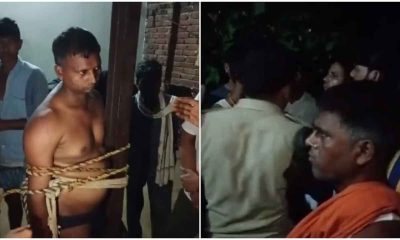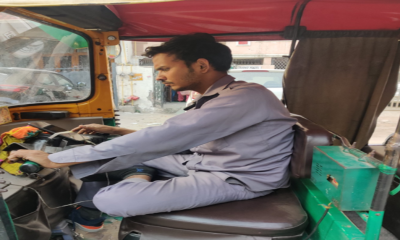Every day, hundreds of women are subjected to sexual harassment, molestation, groping, and even worse. However, only a few per cent of cases are reported every day because some fear it would tarnish their image, and those who have the courage to do so get judged by the people around them in the police station.
Recently, a woman named Unnati, who goes by the Twitter handle The Sunflower, shared her experience of how she had to face the judgement of officials in the police station when she went to register a complaint at the Andheri Railway Police Station. And how she had to narrate the incident 3–4 times to get an FIR lodged.
In a tweet, the lawyer said that she was sexually assaulted on her way to work on the local train. She said she reached the police station at 11 am and told the police in charge that she was molested and would be comfortable speaking about it to a female cop. She said the first question he asked her was, “What is molestation?”
What else can you expect from the police in charge? Further stating the incident to the female cop, she said she was asked if that guy was her boyfriend. Not only this, when the female cop explained the incident to the male senior cop, he said, “Oh God, this is going to be a lot of work.”
Someone who has come to the police station with the hope of getting justice is facing this kind of embarrassment. She said that everyone there kept telling her that, even being a lawyer, why didn’t she hit him?
She said she was annoyed by such questions because the above statement makes it so clear that we are responsible for our own safety because when we go to complain and put our trust in the system, we’re told that we could have solved it better by taking matters into our own hands, she added.
She said she was even asked to narrate her experience in the middle of the entire police station, and that came at the top of 2.5 hours. She, however, denied it and gave the statement in a separate room. She said she identified the perpetrator at 11:30 am in the CCTV footage, but still, no one recorded her statement for around 3 hours.
The place where the incident happened comes under the jurisdiction of Borivali. She then said she was asked to leave and told the information would be forwarded to the Borivali Police Station. She further said that she received a call from that police station in the evening and they called her to identify the perpetrator once again on CCTV footage.
Calling the police system worst, she said she had to describe the situation once again as the Andheri Railway Police didn’t forward the exact details of the accused.
Talking about how women face a situation in the police station when they go to file a complaint of sexual harassment or molestation, she said, “I’m a privileged woman living close to South Bombay.” I take a packed local at peak morning hours to reach my workplace. I’m educated and financially independent. Being an advocate helps because I know the exact ambit of the duties of the police, she added.
She further stated that she was told to go to the CCTV room with 2 male cops (not in uniform) and a female cop accompanied when she insisted that a female cop should accompany her to a place outside the police station. She said her situation would be much worse if she didn’t know her right to ask a female cop to accompany her if she was younger, or if she was from a minority, or a weaker economic background, or if someone who wasn’t aware of those rights and couldn’t take the day off to just file an FIR.
GRP commissioner Quaiser Khalid has instituted an enquiry into the behaviour of the personnel.
She said the way police handle such situations is heartbreaking and called filing a complaint a traumatic experience.
A few people don’t even report it because they know the process of reporting incidents like this would traumatize them further. It is important that police officers show sensitivity in such situations.























